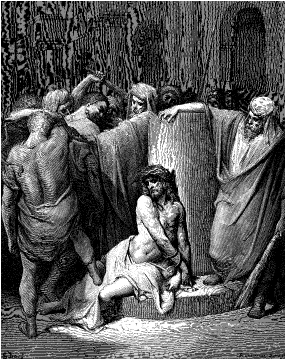2010
Philip Zaleski,
Editor
(Penguin)

Then we are faced with the hoary question of "the best of..." The best of what? Texts published in 2008? "Spiritual writing" from first years of this century? Writings on one (or the many) of the divines?
Even the bit about "spiritual" is doubtful. Of the thirty stories, poems and essays here, only about half dragged in god, or Jesus, or a vague theology ... sometimes as nothing more than an afterthought. If we are only concerned with the major religions of the west --- Christianity, Judaism, possibly even Neo-Paganism and Spiritualism --- most are represented.
But I see little of "African Traditional Religion" (100 million adherents), Sikhism (23 million), Baha'i (7 million) --- much less Juche (19 million), Cao Dai (4 million), and Neo-Paganism (1 million).
The biggest hole here is Islam, with its 1.5 billion adherents. Does this mean that muslims are considered to be without a "spritual tradition?" Irina Tweedie, where are you?
One of the best essays comes from Paula Huston, telling of her journey through Kazakhstan ... where, as in most third world countries, you are sure you are going to die, on the road ... not from the hand of god, but from a mad driver who is sure that his divine is protecting him on terrible cliff-hanging roads as he races along at 100 km/h in an ancient bus.
The "spiritual" here for Huston may have to do with a healer. When she develops a fever, a spirit lady appears, mumbles, circles her hand above Huston's body, and pronounces her "normalna."
There is too Diane Ackerman's touching exploration of the fate of two mystic Jews who died in the Warsaw ghetto. One was Kalonymous Kalman Shapira, who, when offered the chance to escape, stayed on to care for dozens of orphans who were later shipped --- with him --- to Treblinka. He practiced a form of meditation called hashkatah, along with a "sensitization to holiness" ... the discovery of "the holiness within oneself and the natural world."
There is too a version of Dante Alighieri's Inferno by Mary Jo Bang which was so discordant that I --- familiar with little if any 14th century Italian --- was forced to go online to see how these words could possibly be so translated:
- Looking at her bitch-kitty face
I felt a sense of solid defeat, and lost sight of the hope
of climbing any higher.
Like one who as a casino wheel whispers sweet nothings
To his winnings but when it's his turn to lose whimpers,
"How did we come to this?" and wrings his hands,
So was I, just like that sad sack, as the impossible beast
Inch by inch, drove me back into the shadows
Where the sun keeps a stopper in its mouth.
"Bitch-kitty?" "Sad sack?" Sun with "a stopper in its mouth."
Dorothy L. Sayers, a well-respected writer and translator, renders these lines as
-
She was the worst --- at that dread sight a blank
Despair and whelming terror pinned me fast,
Until all hope to scale the mountain sank.
Like one who loves the gains he has amassed,
And meets the hour when he must lose his loot,
Distracted in his mind and all aghast,
Even so was I, faced with that restless brute
Which little by little edged and thrust me back,
Back, to that place wherein the sun is mute.
We could at least praise Bang for her enthusiasm if not her spirit, for our biggest complaint about most of the reviews and essays in The Best has to do with the fact that they are so tired. If Christianity is the focus of this volume, then it must be feeling a terrible weariness ... running on and on: no ecstasy, no passion, no burning fire; scarcely even (even) rage.
Perhaps that is why the fundamentalists get so much press. They may be crazy as loons, but in their passion to confront and condemn the rest of us, there is enough fire to consume them (and us) in a divine uproar ... from here to eternity.